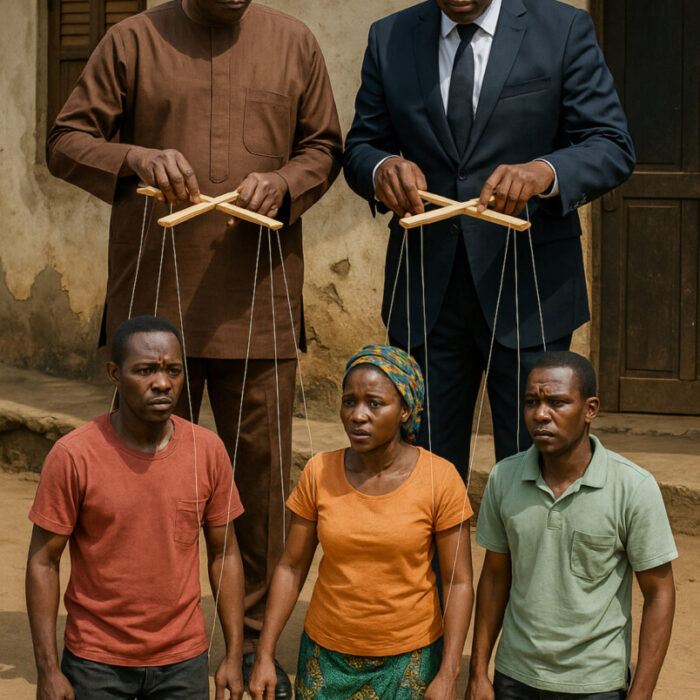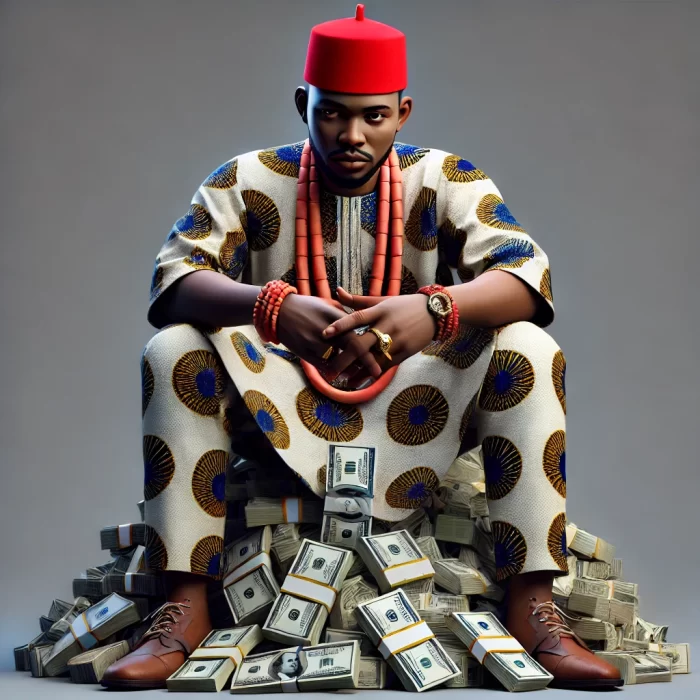By Nnaoke Ufere, PhD
Our nation is gripped by a crippling mindset—a deep-seated pathology entrenched in our collective psyche. We are paralyzed by a self-imposed barrier—a closed mindset that suffocates ambition, silences innovation, and extinguishes any hope or possibility for real change.
This mindset breeds skepticism. New ideas are cast aside with a dismissive, “It won’t work here ooo,” or a fatalistic, “Only God can save us ooo.” This defeatism has become our default, blinding us to our potential and undermining our future.
When new opportunities for change are proposed, our focus is on why they’ll fail, the obstacles in the way, and those who would sabotage any progress.
We have become a nation that sees the glass as perpetually half-empty, unable to imagine a future beyond our current struggles. We are stuck in a crisis of imagination and doubt.
We have fallen into the habit of blaming others, pointing fingers, and placing our problems outside ourselves. This mindset has stripped us of the will to act, leaving us paralyzed, waiting for change from anywhere but within.
We are weakened by fear and consumed by hopelessness, clinging to the misguided belief that salvation will come only through religious intervention.
This deep-seated skepticism and distrust has stifled progress and created a nation where hope and fresh ideas are dismissed before they’re even considered or given a chance to take root.
In this closed mindset, we remain locked in misery, with no change in sight. After a parade of failed leaders and billions of unanswered prayers, hunger, suffering and death endure. Nothing moves forward; nothing improves.
I am convinced that this negative mindset is at the core of our national crisis—our inability to imagine a future where we rise beyond our limitations, a future filled with hope and possibility. A future where we harness our own power to confront and solve our challenges.
In this essay, I delve into the roots of this paralyzing close-mindedness, its consequences, and, most importantly, propose ways to break free.
How We Got Here
A closer look reveals that this closed mindset did not emerge by chance. Decades of broken promises, entrenched corruption, and relentless abuse of power have eroded faith—not only in our leaders and institutions but in ourselves.
The trauma of failed governance has left deep scars. From the unfulfilled promises of independence to the devastation of civil war, we’ve endured pain without healing and without genuine national reconciliation.
We witnessed our founding fathers—Awolowo, Azikiwe, Balewa, and Bello—struggle in their efforts to guide us toward a brighter future. The dream of independence slowly faded as we became a nation fractured by tribal divisions, conflict, and corruption.
The Biafran War, which claimed millions of lives, only intensified these divisions. It didn’t resolve our issues; it left us socially, politically and emotionally fractured.
Successive military coups and authoritarian regimes compounded our trauma, cementing the belief that leadership only brings more suffering. Democracy seemed a hopeful turning point—a beacon of unity, prosperity, and security.
But democracy has proved an illusion. We anticipated freedom, prosperity, and security; instead, we received more poverty, inequality, and hardship. Democracy, too, has failed to deliver.
Each regime, whether military or civilian, only served to deepen our mistrust. Each disappointment solidified the belief that change is a fantasy and progress unattainable, further closing our minds to the possibility of change.
The wealth from oil continues to be siphoned by a small elite, while the majority of Nigerians are left struggling to survive. Poverty, hunger, and suffering have become shared experiences for those at the base of the economic pyramid, uniting the silent majority in despair and hopelessness.
With hope eroded, we resigned ourselves to a fate we felt powerless to change. Religion became our refuge, a means to endure rather than transform our reality. Disillusionment took hold, and a pervasive hopelessness consumed our national psyche.
Many scholars and psychologists interviewed for this essay describe this collective psychological state as a “national depressive disorder”—a condition in which an entire population suffers disillusionment after years of betrayal.
Whether acknowledged or not, we are a nation gripped by collective depression, weighed down by a pervasive hopelessness that permeates every layer of our society.
Our environment—corrupt leaders, self-serving politicians, inept governance, and even our everyday interactions—serves as a constant reminder, a trigger, perpetuating this national malaise.
Daily, we’re confronted by broken promises, the rising cost of basic necessities, the risk of violence, and the bitter truth that our voices often go unheard. This isn’t mere frustration; it’s a deep psychological crisis—a national disorder gripping our collective spirit.
We urgently need healing, not only to address the economic, political, and social dysfunction around us but to mend the damage inflicted on our minds and hearts. We must stop pretending this is normal—that this suffocating pessimism is simply “how things are.” It isn’t.
The effects of our closed mindset have been devastating. We have lost belief in our own agency, becoming passive spectators of our decline. While we lament our suffering and criticize our oppressors, we remain immobilized by fear and distrust when it’s time to act. We cling to the familiarity of despair rather than risk the uncertainty of change, surrendering our power to make a difference.
This path is unsustainable.
Breaking the Cycle: A Call to Action
We can no longer accept this depressive state as “just how things are.” Unless we address the mental toll this has taken on us, we risk deeper descent into paralysis, held back by a system we believe is unchangeable.
Restoring trust is our first step—trust in ourselves, each other, and the possibility of change. This demands leadership that is transparent, accountable, and genuinely committed to our well-being. We need compassionate and competent leaders who inspire action and deliver on their promises.
But leadership alone won’t save us. We must rekindle our own optimism and resilience, remembering that survival alone is not enough—we must aim to thrive. This requires a shift in mindset: seeing opportunities where we once saw only barriers, embracing risks as necessary steps toward reward.
We need to reject automatic negativity. Instead of saying, “It won’t work here,” we should ask, “How can we make it work?” We must foster a culture of experimentation, where failure is seen as learning, not as defeat.
Faith can be a source of strength, but it must be paired with action. Instead of relying solely on divine intervention, we should ask, “What can we do to help ourselves?”
Our survival as a nation depends on breaking free from this closed mindset.
We must confront our past, acknowledge the impact of broken promises, and work toward national healing. In education, business, and daily life, we need to inspire curiosity, creativity, and experimentation. Our youth should see the world not as a place of endless suffering but as a canvas for their dreams.
The journey is long, but it’s essential. We must open our minds, believe in the possibility of a better Nigeria, and take collective action. Our glass is not half empty; it’s waiting to be filled with hope and purpose.
I urge each of us to embrace the power of change and commit to nurturing a growth mindset within ourselves and those around us.
Our future rests on the choices we make and the actions we take today.




